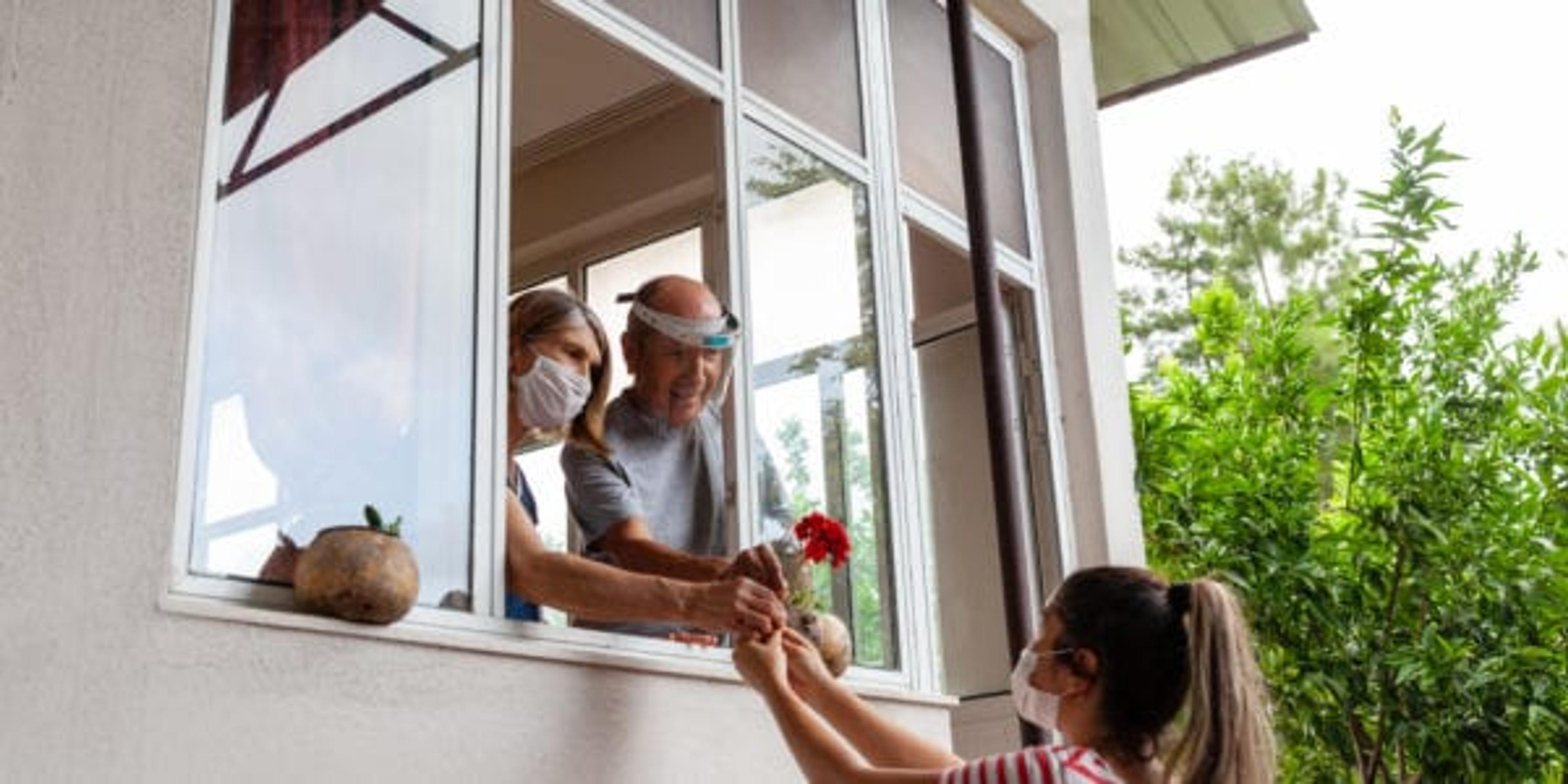Why Random Acts of Kindness are Good for You
Shandra Martinez
| 3 min read

Many of us have been on the receiving end of a little treat like this: Maybe you’re in the drive-thru lane of your favorite coffee shop or lunch spot. You place your order and when you pull ahead to pay for it, you learn that the people in the car ahead of you have already paid for your order. The news is delivered by a smiling cashier, and the surprise not only makes you smile, it makes your day. It also gives you a little nudge to pay it forward and treat someone else.
These random acts of kindness are nothing new, but they are getting a lot of fresh attention these days. They’re being spurred on not only by how they are shared on social media with hashtags and photos, but as a fun way to connect with others during this COVID-19 pandemic, which has severely limited our interactions with friends, relatives and neighbors.
It turns out, there’s scientific research that spells out why it’s good for your health to plan out little random acts of kindness – and to be on the receiving end of these unexpected moments.
Being kind is good for your brain. When we make plans to treat someone else – whether it’s with a generous compliment, a cup of coffee or a little gift – it ends up giving our own mental health a little boost. This happens because when we are kind to others, it releases certain chemicals in our brain which make us feel better, according to psychiatrists at Cedars-Sinai Medical Center in Los Angeles, California.
The first chemical is oxytocin, also called “the love hormone,” which is linked to feelings of trust, generosity and overall friendliness. When this gets a boost, it can also have the physical effect of lowering blood pressure. The second feel-good chemical to get a boost is dopamine, which can flood the brain with a rush of pleasure. Being kind to others can also increase serotonin levels, which helps regulate our mood for the better.
Keep the cycle going. Performing random acts of kindness will feel good – but those feelings will be fleeting. In order to really reap the benefits of your good intentions, health care providers say these acts must become a normal part of our lives. The boost in brain chemicals from doing something nice might only last a few minutes. But becoming someone who does small, nice things for people several times a day is a way to keep those positive feelings going.
Here are some ideas for your next random act of kindness:
- Let the person in line at the grocery store move in front of you.
- Drop a few more coins into a nearly-expired parking meter.
- Get a to-go coffee or tea and hand it to a school crossing guard.
- Pay for the meal of the person behind you in the fast-food drive-thru lane.
- Compliment someone on their great smile.
- Post a positive review of a local merchant on their website.
- Add a little extra to the tip for your next to-go order.
- Make a donation to charity in someone else’s name.
- Bag up gently-used towels or new pet toys and take them to the local animal shelter.
- Drop off cookies on a friend’s porch, or at your local fire station.
- Offer to walk your neighbor’s dog.
- Text someone about why they’re a great person.
- Drop a note under someone’s windshield, telling them to have a good day.
Related:
Photo credit: Getty Images





